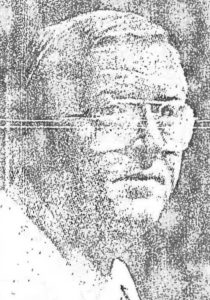Some really good stories never make it into the newspaper for one of two reasons: One, the source is “off the record,” which means you can’t write it.* Or two, the story is just too old. To my way of thinking there’s a statue of limitations on an embarrassing story.
This is one of those stories that I didn’t write for my newspaper, The News & Observer. It was old and off the record. I heard it at a party, from a friend who had worked as a nurse at the Central Prison Hospital in Raleigh.
He told me about a doctor who had operated on an inmate and then sewed him back up without really doing anything. There was nothing he could do. The guy was eat up with cancer — he was terminal.
He had been in prison for years and years and, somebody like that, the policy was to let them out, parole them, let them go home to die.

The nurse said he told Warden Sam Garrison** what the situation was and waited for the parole papers. And waited and waited. Garrison couldn’t parole anyone himself, of course, that was up to the parole board.
When the nurse still didn’t hear anything he called Warden Garrison again. And again. Several weeks went by. Finally, Garrison called the prison hospital and told them get the man dressed and ready to go. His parole had come through, he was getting out that afternoon, flying home.
The nurse told me he told Warden Garrison it was too late — the guy was just about dead.
“Is he dead?” Garrison asked.
“No,” the nurse.
“Then get him ready. He’s been paroled.”
They dressed him, put him in a station wagon, and took him to Raleigh-Durham International Airport to catch a plane to Philadelphia.
But the nurse said the airline wouldn’t take him. They thought he was dead.
One of the people who had carried the guy to the airport put a mirror under the man’s nose, so they could see his breath condensing on the mirror. Faced with proof that he was alive, and the airline put him on the plane.
He was DOA in Philadelphia.
* Why take information off the record when you can’t print it? Lots of good reasons. Sometimes sources change their mind and let you go. Sometimes they let you go on part of the information. Often they would say, if you find it somewhere else, you can use it. And knowing the truth of the matter, even if it’s off the record, helps you weed out stuff you hear somewhere else that’s not true.
**I liked Sam. Sometimes I’d go over to Central Prison to see him for no good reason, just to say hello and stay in touch. He died in 1992 of a heart attack.
Coming Monday: Work Is A Blessing
